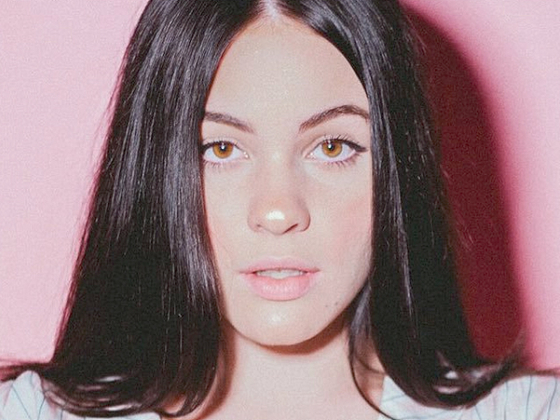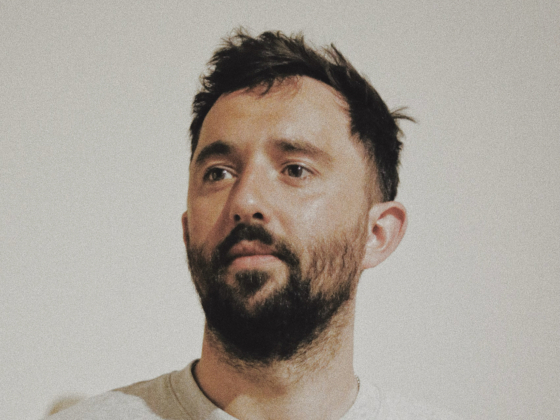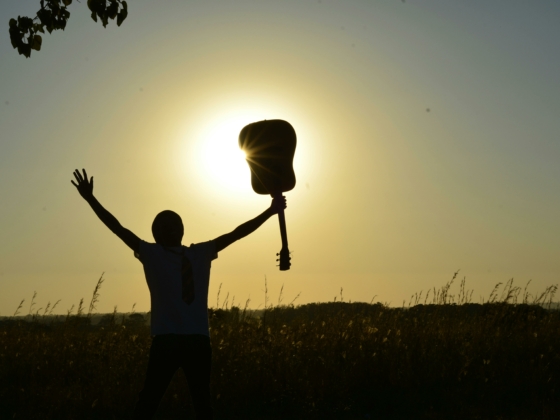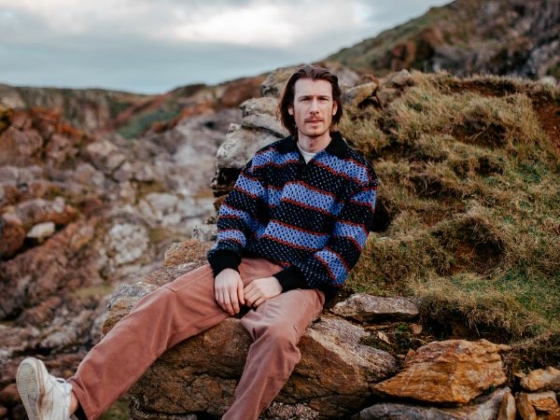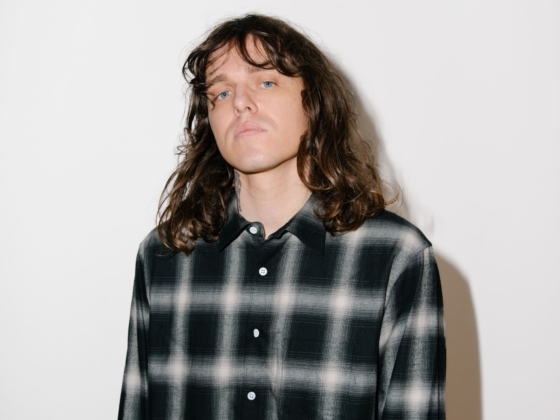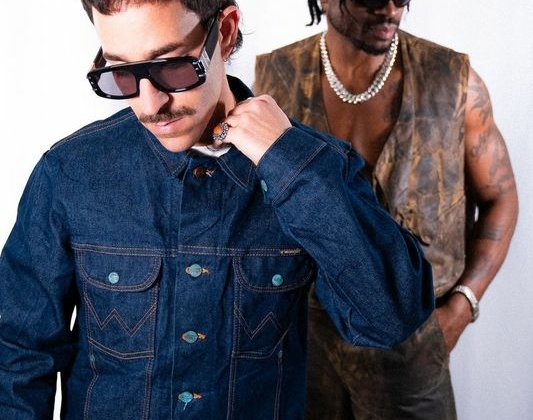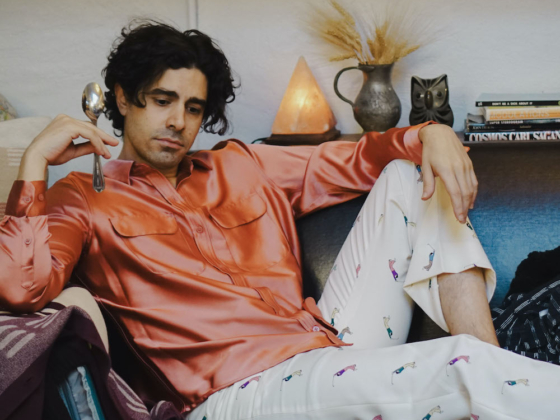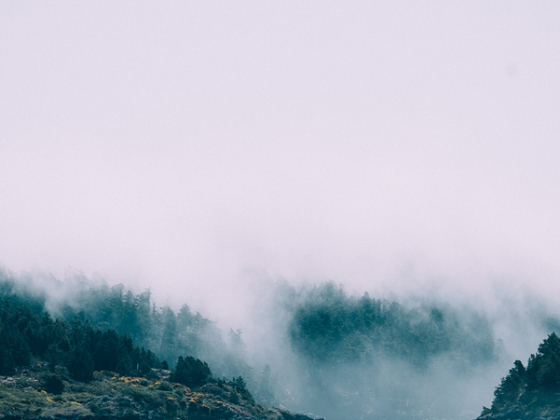It was a cold and biting October evening when I met candid Irish independent musician Rosie Carney, playing an highly successful intimate set in Hackney, London. Her music is unique, and hard to describe, it doesn't easily fit into obvious genre boxes of "folk, ambience, or soul", but instead exists as an exciting new amalgamation of all three. When asked Carney is equally hesitant to label it, and insists: "It's anything you want it to be, whatever the listener thinks it is.”
The close proximity and quiet audience is the perfect way to listen to her music live. We speak at length for EARMILK about growing up in Ireland and its influence on her music, having an affinity and connection with the piano, the in-depth creative inspiration behind her released songs, and of course her extremely important story: "I am a reason".
"Winter is a confessional song written about knowing when something is over. It's inspired by the brutally honest truth experienced when realising something is coming to an end regardless of whether or not that's what you want. It captures the true cold essence of winter which can be felt when letting go. The instrumentation and production were very much inspired by the cold and bare landscapes around me. Everything is raw and minimal.” – Rosie Carney
EM: It seems that living in Ireland has played a large role in your writing. The brooding atmospheric music, and ambient soundscape elements seem to perfectly accompany an introspective preoccupation with nature. I asked Rosie about the extent in which living in Donegal, Ireland has influenced her writing and sound.. Has growing up in Ireland played a big part in your musical inspiration?
RC: It definitely has. I was so young when I moved there (only ten years old). I grew up in Portsmouth on the south of England; it was a big difference when I moved to Donegal right by the top, along the north west coast. It was so beautiful and rugged; I was just so taken in. I was very young, but I started to play the piano, and that’s really what inspired me to write music. It influenced me so much, and just inspired me to want to create. When I started writing music it was all instrumental piano pieces, they were quite soundscape-y.
EM: Do you think you might explore piano more in your debut album?
RC: Yeah. I’m actually going to go home and record my album over Christmas. I’m really excited about it, and I’ve got some really ambient piano pieces I’m going to include. I definitely want to start playing more piano. It’s my favourite instrument, and actually my main instrument. There’s so much freedom on the piano.
EM: The piano is a very expressive instrument. As a musician, whenever I play, and hear piano, I feel such an affinity and connection with it, almost as though we are one. It’s nice that it has such a spiritual, absorbing aspect to it. What do you think?
RC: I think music is such a spiritual thing. I find the process of creating a piece of music, and writing lyrics very spiritual. Sometimes, I feel like I’m almost leaving myself. I get into the meditative state, and it’s almost like a daydream. There’s no other word than spiritual to describe it, it’s just such a spiritual experience.
EM: Have you planned out a lot of songs on your album?
RC: The songs that I’ve released will be on my album. “Better Man”, “Awake Me”, “Humans”, “Your Moon”. I’ve got a few other songs I’ve written, and I’m yet to write a few songs. I’m singing a new song “Winter” tonight, which will also be on my album. I’m also going to include the first song I ever released, called “What You’ve Been Looking For.” I was about 15 when I recorded it, but it was the song that started everything for me. It was my first real spiritual experience when creating. It made me realise what I wanted to do in this lifetime, and what my purpose is, and the reasoning behind everything. "What You’ve Been Looking For" was one of those songs that made me think: “this is why I’m doing this."
EM: I really love your art-direction. I appreciate that you have these black & white, noisy, hazy photos. I imagine it sounding visually like a cloudy and contemplative headspace. It fits your music really well. The direction comes across as minimal, and everything is so well thought out; between the music, lyrics, and the art. How much of that was from your direction?
RC: I love the monochrome too. Yeah, when I try and create my aesthetic, and I think about the sounds that I’m going for in my music, and how I would match that to an image; these distorted, not very colourful images are what spring to mind. I partnered up with an amazing photographer called Deborah Sheady. Deborah has taken all my photos, and is so incredibly talented. We deliberately went for these moody, and vulnerable pictures.
EM: How is it being independent now? I know you were preciously signed to a major label from a young age.
RC: When I was signed to a major label I was basically told I had no artistic control. I wasn't allowed to write my own songs (from such a young age as well), or even able to use my own name – they wanted to call me “Rosie Bones.”A lot of my songs weren't "good enough", and everyone had their own idea of who I should be. I got really confused, and didn’t know who I was supposed to be. My label now is amazing, and suddenly having this freedom is great. I’m so happy with the people I work with, I have so much more freedom and complete artistic control; from what my songs sound like, to how I want things to look. It’s what I always wanted. To have something you can look at, which evokes feelings from when you listen to it is really powerful and important. I just can’t imagine my life without music.
EM: Yeah, I can imagine it's difficult when writing by committee. Direction should probably come from the artist. Especially now – you won’t get anywhere if you’re not sure of where you’re going. It’s important to be aware and clued in. What can we expect from your album?
RC: Exactly, you’ve got to know what it is that you want. I don’t want my album to just be a predictable bunch of songs that people have already heard. It needs to have integrity, and be part of myself to give to people who can resonate with, or relate to it it. All my songs mostly come from the same place – within me. They all have that bit of me, that little “darkness,” like “Awake Me” but the theme of my album will just purely be me, whatever that is. However people hear my message and interpret the music is up to them. I'd like to release it on vinyl too. To have something you can look at, which evokes feelings from when you listen to it is really powerful and important. I just can’t imagine my life without music.
EM: Can you take me through each song individually, starting with "Better Man"?
RC: The “Better Man” melody arose from working with Jared, sitting in a beautiful studio in Attica (20 mins near to Donegal). He helped me compose the melody and write some lyrics. We would just jam, and then I really wanted to create a really ambient love song. My sister influenced it actually; she was going through a break-up at the time, which was awful. I thought: “Is this the worst thing that can happen to a person?” "Better Man" is a song that I wrote very quickly to help her. Sometimes songs feel already written in my head.
EM: How about "Your Moon"?
RC: “Your Moon” I wanted to write a more uptempo soul song, on knowing my own worth, and realising you’re worth so much more than what you’re getting. At the time I was going through a break-up. Everyone deserves the best.
EM: “Awake Me” also had a published story that probably was helping you, but other people too. Can you tell me more about "I am a reason"?
RC: I realised the importance of speaking out, and posting my story – "I am a reason". I started typing and I couldn’t stop. The next thing I know I had the whole page of words with all these things that had happened to me. And, I never realised, but that’s so much stuff for someone to go through. I hadn’t premeditated it, or thought about it before, it just happened.
RC: I had a massive panic attack after I did it, like: “Why have I done this, why have I exposed myself like this?” People started “liking” and commenting on it straight away, I thought: “What have I done?” but then I started to receive messages. I received a message from someone who said “Hi, I saw the story that you posted, this has happened to me, and I’ve never told anyone before.” Another person messaged me and said: “ I suffer from depression and nobody knows, thank you for your story”.
EM: It’s really emotional hearing about these stories [both teary] and it is worth talking about these things, because you are a reason, and you’re a gigantic hole in someone else’s life when you go. If people are messaging you saying “I’ve never opened up about it before” it brings it home, that you’re reaching people who need it most. So many people don’t talk about it. Was there a point where you realised something so difficult to talk about for yourself, was helping others?
RC: It’s such a dark area. I received what felt like 100s of messages, and I even got a message from someone who listened to “Awake Me” saying: “I was going to kill myself; I saw your story and your song, and I didn’t kill myself today." Every single person that has reached out to me, I feel this big connection and love there. It made me realise what it is that I’m doing. My darkness, my depression and all these things that had happened, it’s weird that out of that came this, something so positive.
EM: Wow, you saved a life that day. You took something very difficult to talk about, and made something good of it. I think there's still a big stigma people put upon themselves. I think that’s what makes it so hard to break out is this self-analysis or internalisation of feeling at fault. Although, the majority of people are very keen to help, and very open to listening. I heard "Awake Me" and immediately felt I needed to help spread "I am a reason." I think it’s so hard for people in your position to speak up, but it’s beyond important. Did you feel this stigma?
RC: It’s just opening a door for people. I was so ashamed of my own experiences that I was one of those people that didn’t talk about it, and tried to sweep it under the carpet. I hoped for it to go away. And, then things just go worst. The moment that I started to talk about it and reaching out about it, I realised that people just want to help and support you. Although, they might not be able to understand the full extent of what I’m going through; they’re there. People are there to listen. There is still such a stigma when talking about “mental health.”
RC: I still get people getting contact with me. People will just really open up to me, and tell me their entire stories. I care about so many people, but it’s difficult for me, because there’s a limit to what I can do and I worry so much. All I want to do is help people. All I wanted to do when I was young and going through this was to get help. I feel like I’m helping that 14/15 year old me when I’m expressing these things through music. I’m helping myself.
Connect with Rosie Carney: Website | Facebook | Twitter | Instagram | Spotify



